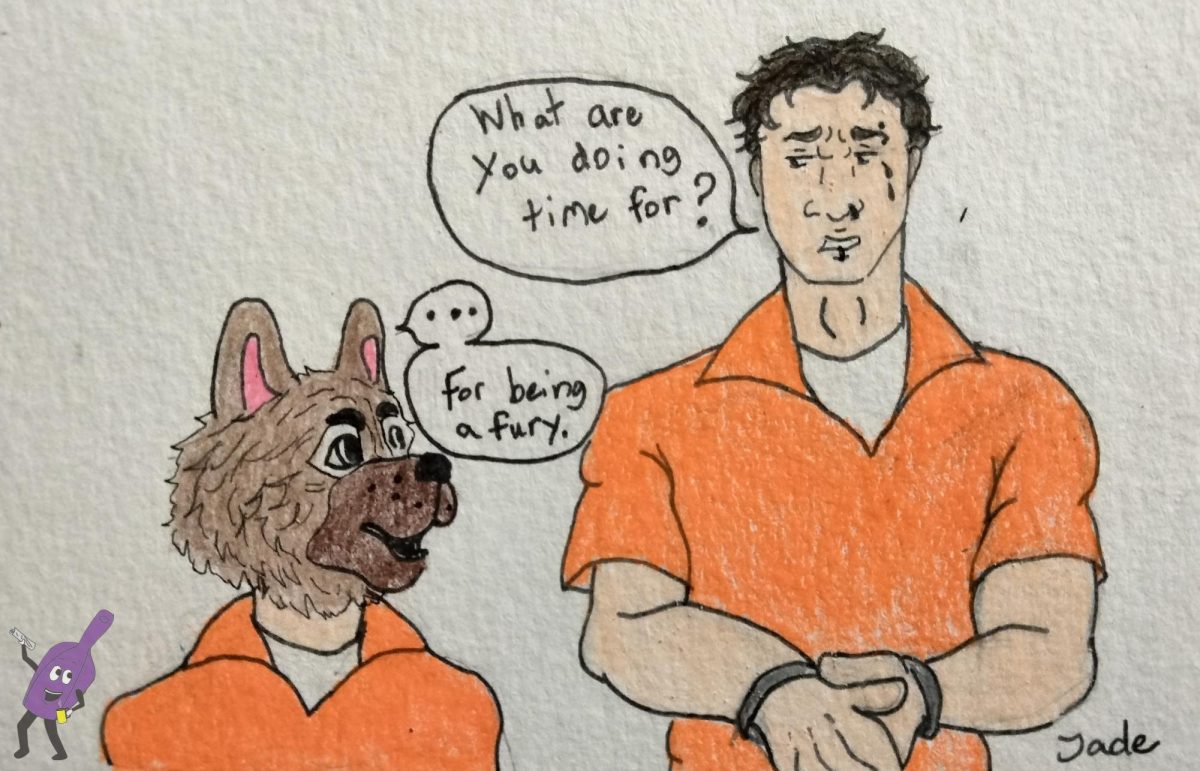Oklahoma Rep. Justin Humphrey R. has proposed a bill for the 2024 legislative session targeting “furries”.
Furries are members of a subculture surrounding anthropomorphic animals. They often create artwork of animal characters or wear costumes of their “fursona” or an original animal character. House Bill 3084 defines them as “students who purport to be an imaginary animal or animal species, or who engage in anthropomorphic behavior commonly referred to as furries at school”.
The Bill is only a page in length but outlines the punishment of students who engage in furryism. All students engaging in Humphrey’s definition of furryism will be prohibited from engaging in class curriculum and parents will be called to remove the student. If the student is not picked up by parents, “animal control services shall be contacted to remove the student”.
Humphrey is criticized for his extreme language regarding students essentially playing dress-up. He published a testimony defending his bill, saying “If you’ve got an animal coming to school, how about we get them vaccinated? How about we get them neutered? How about we send them to the pound”?
This is after much fact-checking and evidence has been made available that being a furry is – in fact – not an identity, but rather a fandom – fandom simply meaning a collective of fans. Reuters fact-checkers report much research on the topic, highlighting that students do not think they are animals. Very little evidence can be found that students acting like animals is an “epidemic” as is claimed by lawmakers.
The furry subculture has become popular on the internet as an escape from judgment for many young people. There are many stereotypes about furries, such as the idea that it is a sexual identity or fetish, however, that is not true. Many students who engage in the furry fandom feel persecuted and bullied for their interests as is and feel unsafe now that lawmakers are moving toward penalizing students for hobbies.
Justin Humphrey, the author of the bill, has experience as probation supervisor, and administrator of the Atoka/ Coal County drug court. Currently, Humphrey serves the 19th district of Oklahoma as chair of the Criminal Justice and Corrections Committee, as well as serving on the committees for Public Safety and Rural Development. How his career led him from the DARE program and police force to drafting bills on furries in schools is unclear.
Many question the relevance of the “furry problem” considering the current issues in Oklahoma education. The state ranked 49th in education in 2023. 19% of students in Oklahoma High schools did not graduate on time, and 78% of fourth graders were found not proficient in reading. Student activists worry that if students partaking in any animal-like behaviors or costumes are banned from participating in the curriculum, it is possible that these percentages could rise.
Additional concerns in Oklahoma’s education system include mistaken bonuses of $50,000 paid to teachers. A program to incentivise professionals was improperly distributed, and with bonuses paid out to the wrong teachers, they are now required to pay them back. The blame in this situation has been pinned onto teachers by state superintendent Ryan Walters, claiming teachers “misrepresented their experience and qualifications”. This points in the general direction of an inefficient state education system.
In the past, the focus on furries in schools has been misdirected nationally. A hoax rampant in 2022 was the debate on litter boxes in classrooms and school bathrooms. This stream of misinformation was furthered by politicians, commentators, and conspiracy theorists, such as Joe Rogan – a popular commentator – and Nebraska lawmaker Bruce Bostelman.
The grotesque reality of this litter box issue is that litter box materials were in a classroom closet in a school neighboring Columbine. Columbine was the location of an infamous 1999 school shooting. The litter boxes were made available in the case of a lockdown if students needed to use the bathroom in class.
Elsie Artezen, Montana State Superintendent, made a statement in an August 2023 interview on litter boxes in schools. “Let’s talk about boys in girls bathrooms and that safety issue. Let’s talk about those litter boxes that some schools are putting out for children who want to view themselves as some sort of an animal. Is this where public education should be? I say no.” The fact that this disturbing truth was covered up and spun into a gender argument even in Montana – where just a year ago students allegedly needed to urinate in trash cans during a lockdown – is deeply unsettling to many.
The myth stems from fear during the ongoing culture and gender identity war, as many attempt to tie the hobby of furries to the identities of transgender students. Examples of this include South Dakota legislative hearings for bills having to do with transgender healthcare access. A lawmaker referenced furries in the debate and asked one trans-rights advocate about her genitalia upon her testimony. This causes major discomfort in the trans and LGBTQ+ community, as many report feeling dehumanized.
Both students partaking in furry hobbies and their peers who are wrapped into the same category despite a lack of association, feel unsafe in school settings. The harsh language of lawmakers, from Humphrey’s call to “neuter” furries, to the overall invasive questions to young people who are disturbed by the idea of “normal,” create a turbulent setting in education spaces.





